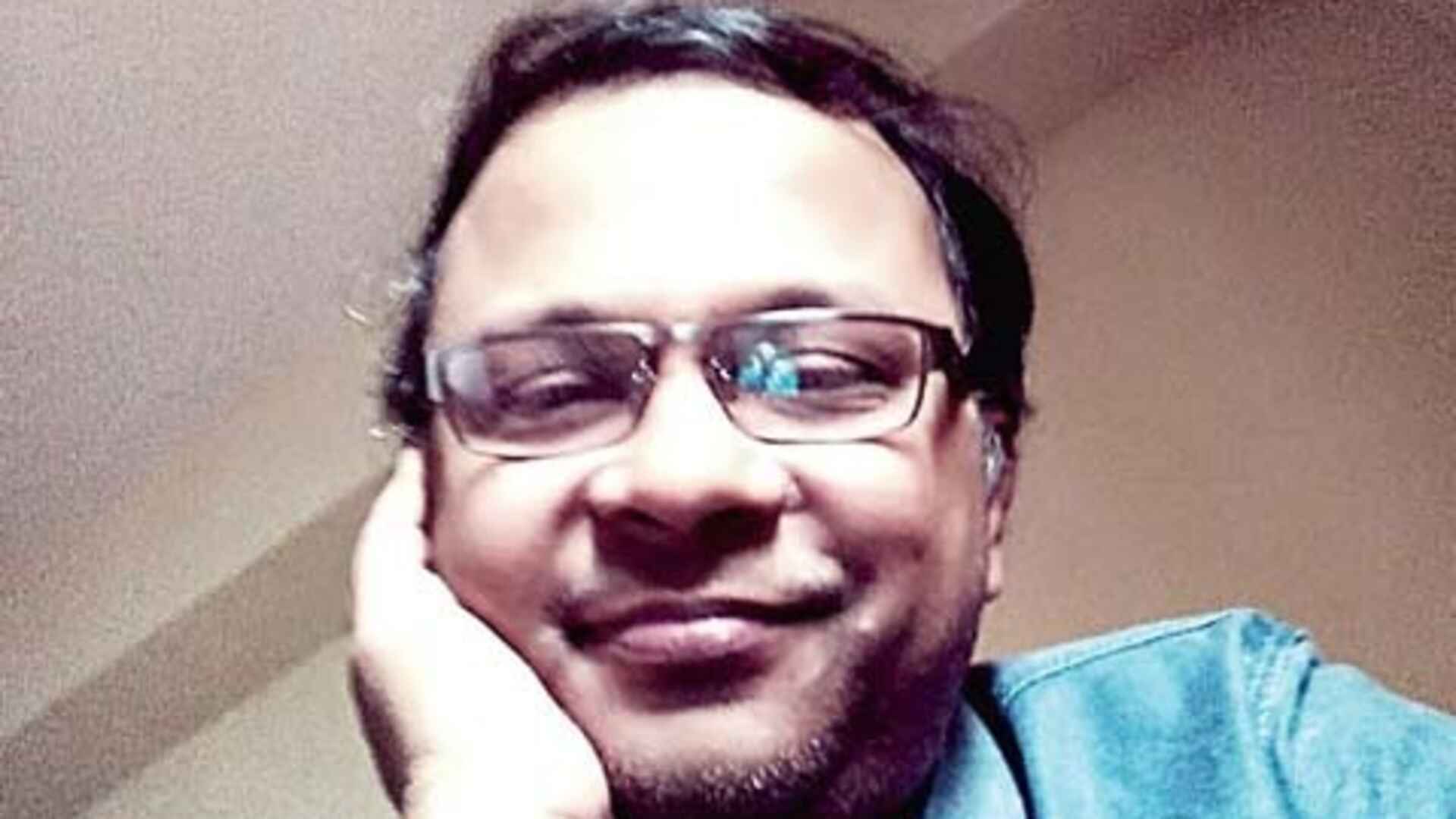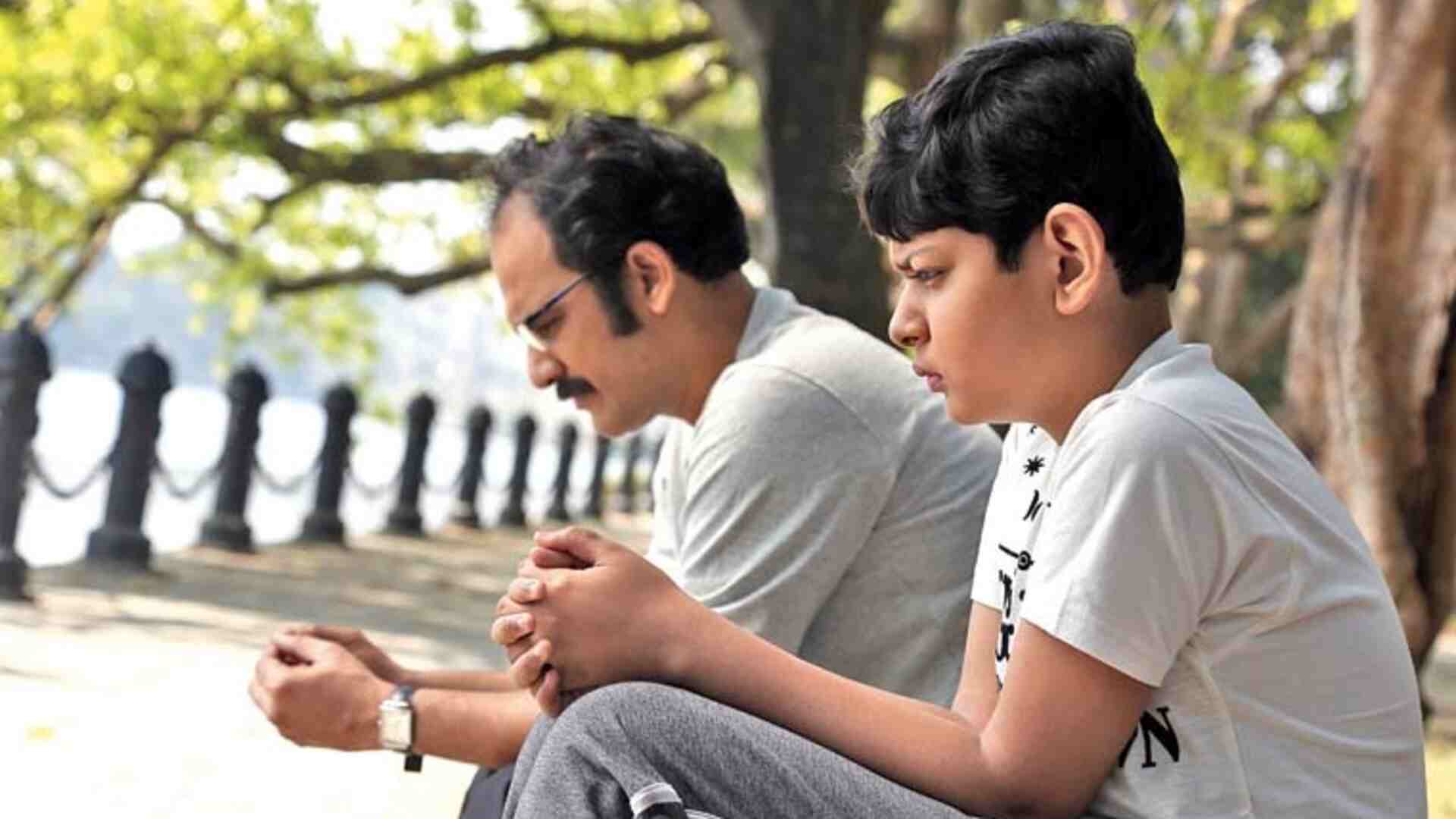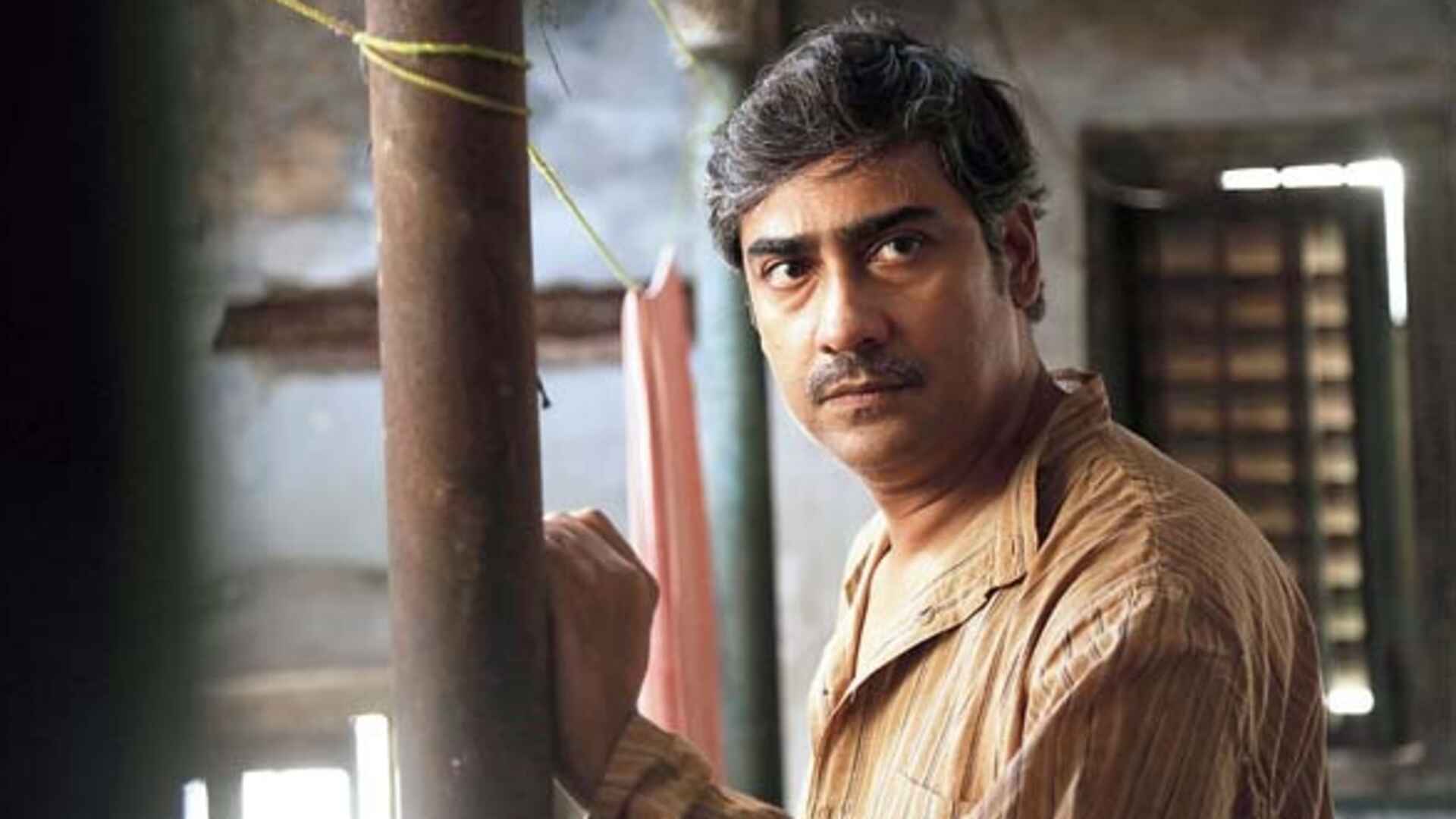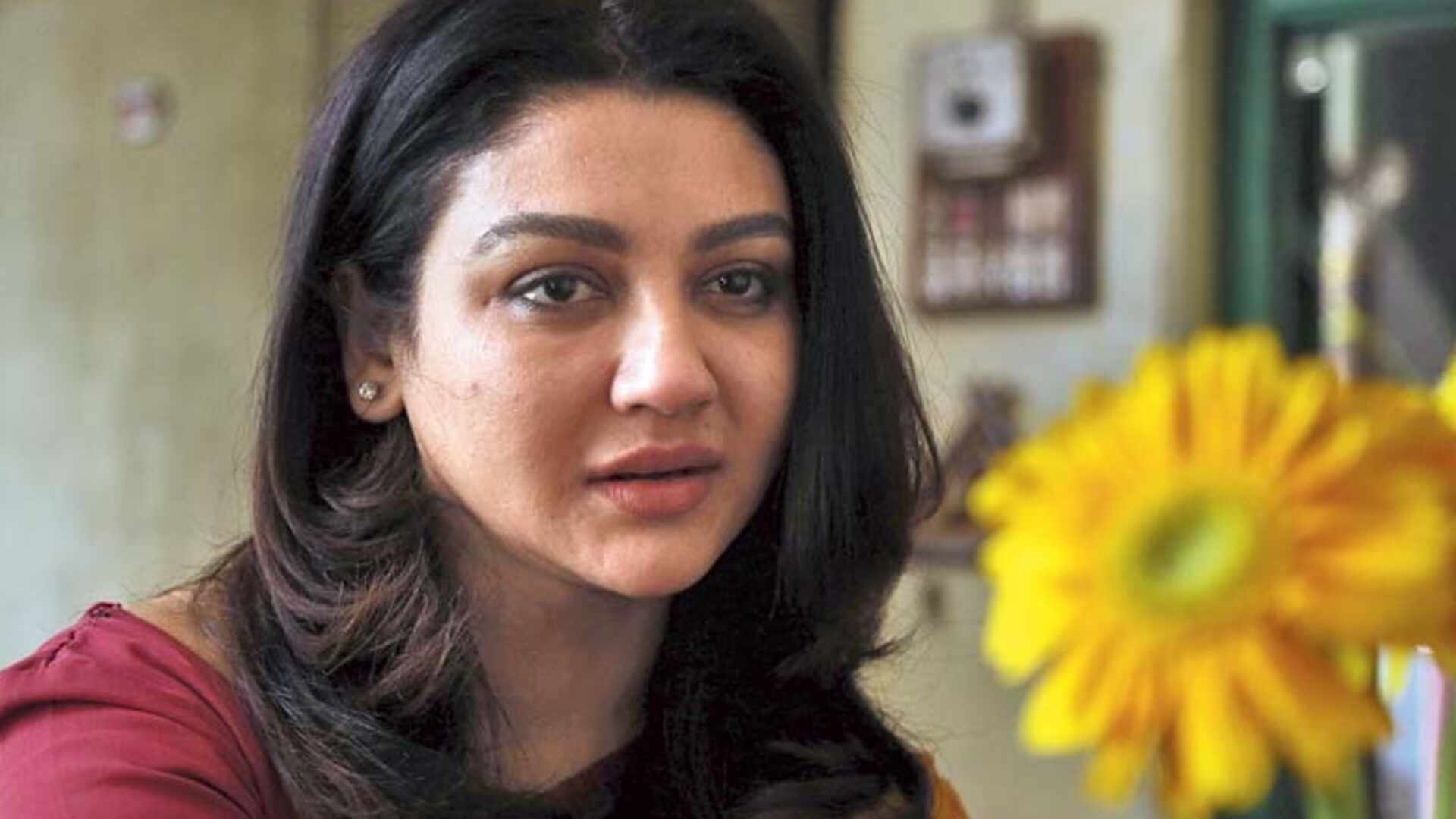The loneliness and barrenness of privileged urban life come under the scanner in Binisutoy. It tries to find out why two strangers (played by Ritwick Chakraborty and Jaya Ahsan) are trying to form a connection through a quest to touch the core of the unknown. The director talks to us about it.

Director Atanu Ghosh Sourced by the correspondent
Your film Binisutoy is a compelling watch. Incidentally, we were reminded of the film Life is Beautiful, in the way Guido convinces Giosue that their time in the concentration camp is merely a game so that he can shelter his son from the horrors of his surroundings. There is the element of telling stories, and how stories can protect someone’s innocence. What are your thoughts on this?
Curiously, Kajal also refers to surrounding horrors when he tells his son, ‘All this unrest, hue and cry — people breaking this, destroying that — what assures us to live on?’ The son quips, ‘Stories?’ Kajal confirms, ‘Absolutely! There is a design only because of stories. Amidst all this anomaly, we have some control.’ Now, the question is, what kind of control? Can it protect innocence or create a deep bond of empathy and trust? Neurological research has found a cause for our love of stories. When we hear a story that connects, the levels of a hormone called oxytocin increase. Oxytocin, a feel-good hormone, boosts our intimate feelings like trust, compassion, and empathy. It motivates us and positively influences our social behaviour.
I believe in what Alexander McCall Smith said — ‘A life without stories would be no life at all.’ Whatever your age, you are transported mentally and psychologically to another time and space. That is the power of stories for me. Deeply immersed inside a story world, our brain starts to decipher the motive, or guess what will happen next in the story. All this helps us to see a situation from different perspective. It can even shift our core beliefs, convictions and, over time, can drive a broader change in attitudes, like our views on life, relationships, politics or the environment.
Did the film somehow start for you with the brilliant conversation scene the father has with the son by the lake? How important was the scene?
Yes, the scene does explore the core focus of the film. At another level, it depicts the predicament and suffering of the modern-day child struggling with performance pressure. Scared of subjects he hates, the child desperately pleads to be allowed to pursue his passion for literature. The father pampers him by voicing his interest in mastering the art of telling a ‘great’ story!

A scene from the film Sourced by the correspondent
Both the lead characters use the power of imagination and seek refuge in stories to make life more bearable for them. Do you know of such people?
Yes, of course. I met someone while shooting a corporate film. The man confessed to seeking refuge in stories. But he had no creepy intentions. He only aimed to create an alternate world of subsistence for himself and the listener. What engaged him was a bond of empathy and trust with the listener within a make-believe world that he had the freedom to create and control.
Why do you think this approach — seeking refuge in stories — works for them?
As I developed the concept, I conceived it around two people — Kajal and Sraboni — who are materially successful in real life. But in the tales they narrate, they are always in some form of crisis and invariably seeking contentment. My focus was to explore how life experiences serve as the ultimate source of sustenance, realisation and serenity.
Since they are not being truthful to their family and leading a double life with secrets, do you feel issues of ethics or morality come up here?
Interesting question! Seemingly ordinary men and women sometimes hide startling secrets from those closest to them. Psychologists say that the people who live in multiple worlds might indeed be residing in a web of lies, risks and shame. And it would be fascinating to explore where and how Kajal and Sraboni would draw a line to their pursuits, presumably to avoid such complications. Further, what would happen if the duality spins out of control? I am not bothered about pangs of morality or ethics creeping into art, but there can be no denying that it can be quite a burden on the mind. But that would be a different story altogether. Binisutoy, as it stands now, does not explore these complexities.

By not confronting unpleasant realities and leading a double life, aren’t they becoming escapists as well? They could have given more time to family members and worked on their crises.... but they chose a different path. Why?
I do not term it as escapism or romanticism simply because it leads to the process of acquiring insight into one’s character or, simply put, a sense of self-discovery. Some people go through life playing a role to mask who they are. Others become what others want them to be. It is only through the discovery of self that we can identify the purpose and meaning of our life. I believe Kajal and Sraboni give adequate time, responsibility and importance to their personal and professional lives and family. No complaints on that domain!
We felt the film somehow condones what the lead characters are doing. Wasn’t there a space to criticise their behaviour?
The script never takes a judgmental view. We humans tend to go for quick judgments on others based on surface impressions. When judging others, we use stereotypes based on our experience. That is where we go wrong. The film is only 96 minutes long! After it ends, let the audience ponder and formulate their views. No issues whatsoever if they also prefer to go non-judgmental!
In their stories, both Kajal and Sraboni occupy a space that is far removed from their privileged reality. It is a different socio-economic space. A character who represented that space and voiced a distinct but different opinion was missing. Koushik Sen’s character could have been fleshed out more maybe. Your thoughts...
Minimalism is often a privilege reserved for the wealthy! The “less is more” approach is often longed for within abundance. And one single film cannot afford to explore the psyche of multiple socio-economic spaces. That would have been a different story altogether.
Koushik’s character has some specific purpose in the film. First, he serves as a connecting link between ‘Buri’, the 12-year-old daughter within the story, and the real one that is Sraboni herself, on whom Koushik pens the poem. The poem explores the backstory of Sraboni’s life. Besides, the flower vase that gets broken within the story is re-planted on Koushik’s writing table. That is a cross-connection between feelings and emotions that exist in reality vis-a-vis in imagination.
Is the film structured like a thriller with plot points and twists?
I never design or structure a script before writing it. Instead, I rely on organic response. Binisutoy is engaging because of the twists and turns in the plot. But it is never a thriller in the conventional sense of the term.
